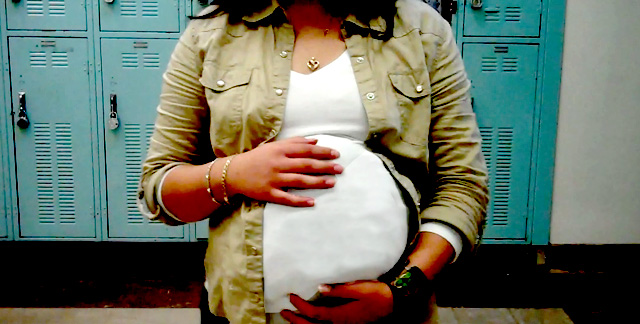 To Shaq, it was not an ordinary chemistry class at San Francisco’s Burton High School. That cold spring morning, he had a plan. He was going to film a drug scene in the middle of the lesson. He had his props ready – a small mirror, a dollar bill, and powdered sugar. He sat there prepping the scene on his desk while the teacher posted material on the chalkboard, unaware of the shenanigans occurring in the back of the class. Shaq then took out his flip video camera and began filming without any disruption.
To Shaq, it was not an ordinary chemistry class at San Francisco’s Burton High School. That cold spring morning, he had a plan. He was going to film a drug scene in the middle of the lesson. He had his props ready – a small mirror, a dollar bill, and powdered sugar. He sat there prepping the scene on his desk while the teacher posted material on the chalkboard, unaware of the shenanigans occurring in the back of the class. Shaq then took out his flip video camera and began filming without any disruption.
When presenting the footage to his Peer Resources class the following week, it was obvious that the teacher had no clue what was going on. It could have been the real deal. And this aligned perfectly to Shaq’s point in his film We Need Help that he co-produced with his classmate Stephanny. The film is about the lack of support high schools have for at-risk youth. To Shaq and Stephanny, most teachers do not know how to read the signs for help from youth who are in need of some kind of intervention. Or maybe the signs are clear, but there are a lack of resources or methods put in place. In any case, the film explores this critical issue through the lens of two fictional characters. One is a drug addict; the other is a pregnant teen.
This is one of twelve student films that were produced at Philip and Sala Burton High School in Bayview. These films were part of Project VoiceScape, a partnership with Adobe Youth Voices, PBS, and POV that is aimed at encouraging middle and high school students nationwide to use digital media tools in creating compelling stories about issues and concerns important to them. At Burton, the students all picked the theme of college access as a focus for their films. The concept references financial struggles, immigration issues, lack of support, fears and anxieties.
KQED Education also worked with students from James Lick Middle School. All of the work was done in partnership with the San Francisco Ed Fund’s Peer Resources program. They explored topics like depression, immigration, graffiti, video game addiction, domestic violence, and race and discrimination. Students produced incredibly poignant films about social issues that personally affect them. Through this personal lens, these films aim to express issues subjectively and do not attempt to hold any sort of objective journalistic integrity. These films also do not represent the opinions of any of the partnering organizations.
And without further ado, here’s the film We Need Help, produced by Shaqur Hill and Stephanny Castellanos.